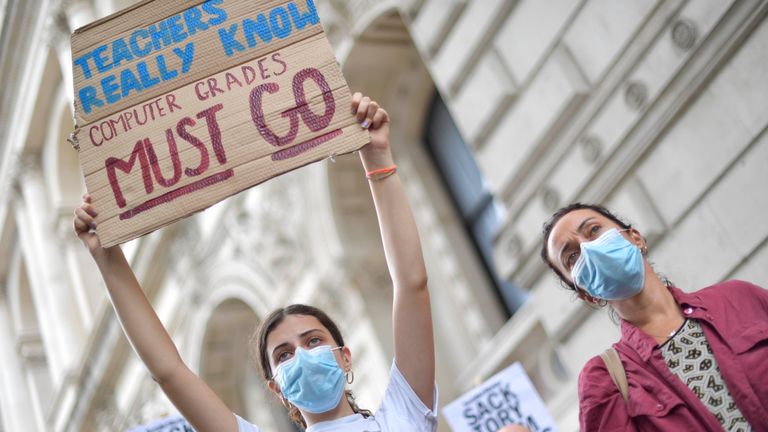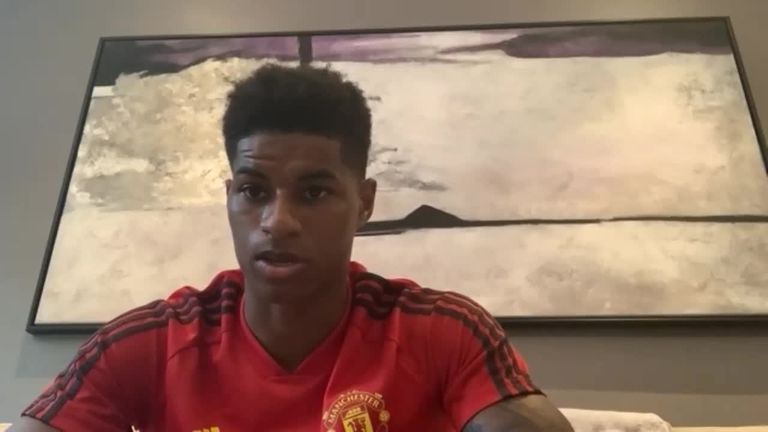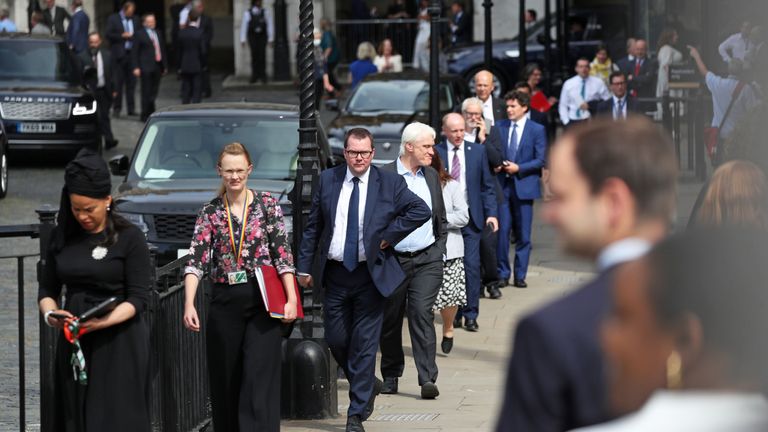U-turn if you want to: 11 times Boris Johnson reversed government policy
Thursday 27 August 2020 12:09, UK
Margaret Thatcher once famously said "You turn if you want to, the lady's not for turning!" as she faced suggestions she was about to U-turn on government policy - but it seems her latest successor isn't as afraid to reverse his plans.
In the last 14 weeks alone, Boris Johnson and his top ministers have made a series of policy about-turns.
They include:
25 August - Face masks in schools
The government announced face coverings would be mandatory in school corridors for pupils in English towns and cities that are subject to stricter coronavirus restrictions.
Just a day earlier, Downing Street had said there were "no plans" to change the guidance, while England's deputy chief medical officer, Jenny Harries, had said the evidence on whether children over 12 should wear masks in schools was "not strong".
21 August - Eviction ban
A ban on evictions, introduced due to the coronavirus pandemic, was extended by the government for a further four weeks in England and Wales - just days before it was due to expire.
Ministers had been under pressure to extend the ban amid fears thousands could lose their homes.
17 August - A-levels
A-level and GCSE students in England, Wales and Northern Ireland were told they would be awarded grades as predicted by their teachers.
The move saw the government ditch a controversial algorithm - claimed to disproportionately penalise students from schools in disadvantaged communities - that had initially been used to "moderate" grades in the absence of exams this summer.
24 July - Face masks in shops
The government made the wearing of face coverings compulsory in shops, supermarkets, takeaways, banks and post offices in England - weeks after many other European countries had introduced similar measures.
Ministers had previously described the evidence of face coverings having an effect on the transmission of coronavirus as "weak".
14 July - Huawei
The prime minister ordered all Huawei technology to be stripped out of the UK's 5G network by 2027.
The announcement came little more than six months after Mr Johnson had allowed the Chinese firm to have a role in the UK's next generation mobile infrastructure.
18 June - NHS test and trace app
The government abandoned efforts to develop its own coronavirus contact-tracing app after Health Secretary Matt Hancock admitted tests showed it only identified one in 25 contacts when used on Apple phones.
At the beginning of May, the app had been trialled on the Isle of Wight with the government having said the app would be rolled out to the rest of the population "later in the month" if the trials were successful.
16 June - Free school meals
Downing Street announced free school meals would be provided to some children during the summer holidays - despite the Department for Education having said they wouldn't.
The U-turn followed a high-profile campaign by England and Manchester United striker Marcus Rashford, who Health Secretary Matt Hancock called "Daniel Rashford".
9 June - Schools to go back before summer
Plans for all pupils in England to return to primary school before the summer holidays were shelved by the government.
Education Secretary Gavin Williamson had faced opposition in his attempts to get children back to the classroom, with some teaching unions having said it was not safe to do so.
10 June - MPs' voting
MPs who could not attend the House of Commons because they were "shielding" during the coronavirus pandemic were allowed a proxy vote.
The government had previously intended for MPs to only be allowed to vote if they were physically present in parliament, after ministers scrapped the use of online voting.
21 May - NHS fee for foreign health workers
The prime minister pledged to scrap the fee for foreign health and social care workers to access the NHS.
Just a day before, Mr Johnson had defended the NHS surcharge as "the right way forward".
:: Listen to the Daily podcast on , , ,
20 May - NHS bereavement scheme
Families and dependants of migrant NHS support staff who die after contracting coronavirus were granted indefinite leave to remain in the UK in an extension of a bereavement scheme.
The Home Office had faced criticism after cleaners, porters, social care staff and care home workers had initially been left out of the scheme.






